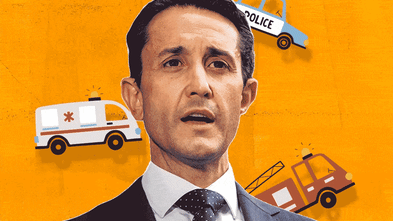
Queensland Premier David Crisafulli is focusing on the delivery of essential services as a strategy to secure his government’s long-term success. Following a decisive victory in the 2024 state election, he aims to build on this foundation to ensure his administration can effectively tackle pressing issues such as crime, housing, health, and the rising cost of living.
During a recent interview at the government’s headquarters at One William Street, Crisafulli expressed his intention to lead a “generational government.” He emphasized that the focus should remain on practical services rather than ideological debates that have caused division within federal politics. “If we can just nail those services – build the roads and the hospitals and schools and make sure that we’ve got properly resourced police and fire services – there’s a golden era ahead,” he stated.
As Crisafulli outlines his vision, he is acutely aware of the challenges that accompany rapid population growth in Queensland. The congestion on the Pacific Motorway and the strain on public services are immediate concerns. With preparations underway for the 2032 Games, there is an urgent need to enhance infrastructure and housing availability. The Premier believes that how these matters are addressed will significantly shape his legacy.
The approach taken by Crisafulli stands in stark contrast to the struggles faced by his federal counterparts, who have experienced setbacks on issues like climate change and migration. He recalls being advised by fringe conservative groups during his opposition years to adopt a more aggressive stance, which he ultimately rejected. “State governments are about services,” he reiterated, rejecting the notion that his administration should engage in ideological battles.
Crisafulli’s leadership style has so far been characterized by discipline, steering clear of the cabinet leaks that plagued the previous Labor government. Yet, his cabinet is not without its controversies. Laura Gerber, the Youth Justice Minister responsible for tackling juvenile crime, has faced criticism over claims of a toxic workplace, as she navigates a high turnover of staff. Despite this, Crisafulli maintains his support for her, highlighting the need for effective crime reduction strategies.
While cabinet unity appears strong, concerns have arisen regarding Jarrod Bleijie, the Deputy Premier. His outspoken views on various issues, including the contentious topic of pill testing, have drawn attention and sparked debate within the party. Crisafulli acknowledges the importance of a balanced dynamic between the premier and deputy, reflecting on the successful partnership of former leaders Peter Beattie and Terry Mackenroth.
Crisafulli also addresses allegations of favoritism concerning government appointments, which have been criticized for favoring LNP affiliates. An investigation revealed that one-third of the state’s 320 boards were updated within the first year of his administration, with several appointments linked to the party. He defends these changes as merit-based, noting that former Labor ministers have also been included in relevant positions.
“An incoming government should be able to refresh a board,” Crisafulli asserted, emphasizing the importance of aligning appointments with the government’s priorities. He reiterated that the qualifications of appointees remain paramount, dismissing opposition claims of cronyism as unfounded.
As Crisafulli aims to solidify his administration’s impact, he faces the challenge of addressing the needs of a growing state while maintaining focus on essential services. His strategy reflects a commitment to governance that prioritizes the welfare of Queenslanders, setting the stage for what he hopes will be a transformative era for the state.






